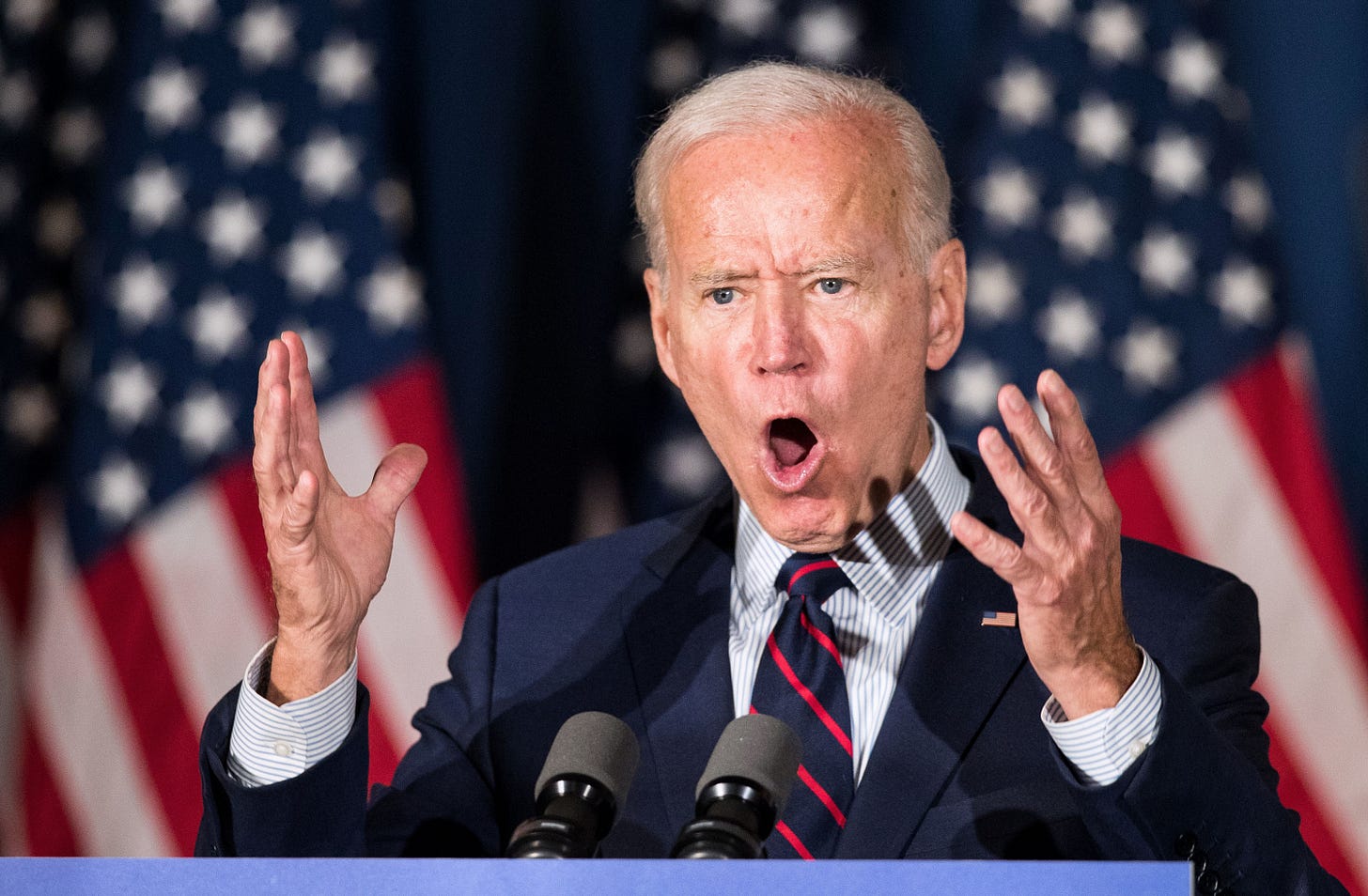Three Myths That Exploded on Super Tuesday
Skill, money, timing—and what comes next.

Joe Biden’s smashing success on Super Tuesday shocked basically every pollster, prognosticator, and analyst. He overshot what many considered to be his best-case scenario, and then some. The morning after the polls closed, Biden led Bernie Sanders in the delegate race with 453 to Sanders’s 382.
As of this writing, there are still plenty of delegates from Super Tuesday left to be assigned, and most of the primaries still lie ahead. But voters in the Super Tuesday states gave Biden an edge in delegates and left him with real momentum, making Biden the clear favorite to win the nomination. By doing so, they dispelled three myths about the primaries.
Myth #1: The Iowa caucuses, flawed as they might be, serve an important purpose.
For decades, the theory of the Iowa caucuses has been that letting a small state without a major media market hold the first contest forces candidates to practice retail politics and make their case directly to voters. When every candidate, from the most illustrious to the most unknown, is forced to camp out in Cedar Rapids for a year, it levels the playing field: talent and skill become more important factors, rather than pure name ID and money (more on that later).
But the Iowa caucuses didn’t really do that this year—and not only because the state Democratic party and its app vendor screwed up royally. Iowa gave a split decision. Half the “victory” went to Sanders, who almost won the state four years ago, was the runner-up for the party’s nomination, enjoys nearly universal recognition, and has been one of the top candidates for the nomination since announcing he was getting in the race.
The other “winner” of Iowa was Pete Buttigieg, who is exactly the type of candidate that the Iowa caucuses are, theoretically, supposed to help—not because of his policy views but because of his potential as a leader. Buttigieg has talent, charisma, and political acumen, but nobody outside of South Bend had ever heard of him before he announced his candidacy. His political skill and sophistication propelled him to first place in the caucuses. A week later, he came in a close second in New Hampshire. And 19 days after that, he dropped out of the race and endorsed Joe Biden.
Oops.
Turns out that propelling a previously unknown candidate to first place in Iowa doesn’t make as much difference as we thought. In the end, all that the Iowa caucuses accomplished was giving an early boost to the already-strong Sanders campaign.
Myth #2: Money plays a decisive and anti-democratic role in our politics.
Maybe this is true in some contests, especially at a local level. In a state legislative race, the difference between a well-financed candidate who can advertise and one who can’t could be huge.
But in presidential politics, that hasn’t been the case. President Trump spent less money on average per day than most of his 2016 primary opponents. Trump spent about half as much in the 2016 general election campaign as Hillary Clinton did, and while he didn’t win the popular vote, he did win about the same share of the popular vote that John McCain and Mitt Romney did (46.1 percent compared to 47.2 percent for Romney and 45.7 percent for McCain).
The lesson has been even clearer in the Democratic primaries. Two billionaires, Michael Bloomberg and Tom Steyer, together spent more than $660 million to net 44 delegates and 0 delegates, respectively before realizing they were beaten and dropping out.
Biden, by contrast, has spent less than $70 million, even including expenditures from his allied super PACs, Unite the Country and American Possibilities.
The assumption that money can effectively buy votes—or even that better-funded candidates have an insuperable advantage over cash-strapped opponents—doesn’t seem true. Maybe that’s because so much political spending is being funneled through issue organizations and independent groups, rather than political parties (though so far, super PACs have spent only about $10 million on the Democratic primaries). Or maybe it’s because the value of earned media dwarfs what even the most high-rolling campaigns can buy.
Myth #3: Biden missed his moment on impeachment.
Some, ahem, commentators have speculated that Biden’s silence during the impeachment had vitiated his central message. Remember, the former vice president once said of President Trump, “If we were in high school, I’d take him behind the gym and beat the hell out of him.” Tough talk, but if Biden couldn’t muster up a response when the president got himself impeached trying to besmirch Biden’s and his son’s reputations, then maybe Fightin’ Joe wasn’t as safe a bet to unseat the president as he thought.
As it turned out, Biden didn’t need to have his big, confrontational moment with the president during the primaries. Enough voters, especially college-educated white voters and black Democrats, rallied behind him that he can save his righteous indignation for the general election campaign—when the name Hunter Biden is bound to come up again.
That is, assuming he can express righteous indignation about the attacks on him and his family to a national audience instead of just one Iowan.
If Biden wins the nomination, he will have the unique opportunity of running against the only impeached president to seek reelection in American history. He should take that impeachment and everything it symbolized—the corruption, underhandedness, shoddiness, secrecy, unaccountability, lawlessness, and brazenness of this president and administration—and make it a major part of his campaign.
Unless, somehow, again, he doesn’t need to.
Correction: A previous version of this piece misstated the history of presidential impeachments. Andrew Johnson was impeached but not removed from his only term in office, and failed to secure a major party nomination thereafter.


